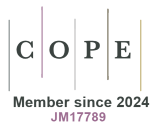The future of Funds for Innovative Medicines: results from a Delphi Study
DOI:
https://doi.org/10.33393/grhta.2021.2219Keywords:
Dedicated Funds, Delphi Study, Innovative medicines, Pharmaceutical policyAbstract
Introduction: Dedicated Funds for Innovative Medicines were introduced in 2017 for cancer and non-cancer drugs in Italy. After three years, their impact on patient access to the relevant treatments and critical issues about their management has been poorly investigated.
Aims and scope. This paper aims at bridging the literature gap and providing possible reforms scenarios.
Methods: Our analysis relied on a qualitative approach. The personal opinions of twelve Italian experts coming from the Ministry of Economy and Finance, the Scientific Committee of the Italian Medicines Agency, the Regions and Patient Associations, the Oncologists’ Scientific Societies and Hospital Pharmacists were elicited through a Delphi approach. A consensus on final recommendations was reached in two rounds.
Results: Experts were in favour of maintaining dedicated Funds for Innovative Medicines and had a distinct preference for a single Fund. Most of them suggested to extend access to Funds to more than three years, if, for the relevant indication, there are no alternatives to the innovative drug and provided that this does not represent a barrier to new entries. Responders advocated for Funds being covered by on top resources and the production of more evidence on their impact. They finally claimed a speeder flow of information to the regions on expenditure for innovative treatments and an enhancement of controls on prescribing behaviour, to avoid prescriptions be dependent on Funds capacity.
Conclusions: The consensus document provides for eight recommendations that could be taken into account for possible reforms and future research on this topic.
References
- Aifa, Report di valutazione dell’innovatività (https://www.aifa.gov.it/farmaci-innovativi (accessed 20 november 2020).
- Aifa, Monitoraggio della Spesa Farmaceutica Nazionale e Regionale (https://www.aifa.gov.it/farmaci-innovativi, (accessed 20 november 2020).
- Cittadinanzattiva, Indagine civica sul grado di accesso ai farmaci innovativi (https://www.cittadinanzattiva.it/files/primo_piano/salute/INDAGINE-CIVICA-SUL-GRADO-DI-ACCESSO-AI-FARMACI-INNOVATIVI.pdf, (accessed 20 november 2020).
- Lidonnici D, Ronco V, Isernia M, et al. Tempi di accesso ai farmaci in Italia nel periodo 2015-2017: Analisi delle tempistiche di valutazione dell’Agenzia Italiana del Farmaco. Glob Reg Health Technol Assess 2018; 5:1-9
- Congresso Nazionale AIOM, Il fondo per i farmaci innovativi sia confermato. Serve più impegno sugli screening, obiettivo +10% in cinque anni (https://www.aiom.it/congresso-nazionale-aiom-il-fondo-per-i-farmaci-innovativi-sia-confermato-serve-piu-impegno-sugli-screening-obiettivo-10-in-cinque-anni/, (accessed 14 may 2020)
- La Repubblica, Tumori: aumenta la spesa per i farmaci, +659 milioni in un anno (https://www.repubblica.it/oncologia/news/2019/09/27/news/tumori_aumenta_la_spesa_per_i_farmaci_659_milioni_in_un_anno-237081742/, (accessed 14 may 2020)
- Linstone HA, Turoff M, eds. The delphi method. Reading, MA: Addison-Wesley; 1975:3-12.
- Trevelyan EG, Robinson N. Delphi methodology in health research: how to do it? Eur J Integr Med. 2015;7(4):423-428. https://doi.org/10.1016/j.eujim.2015.07.002
- Avella JR. Delphi panels: research design, procedures, advantages, and challenges. Int J Dr Stud. 2016;11:305-321. https://doi.org/10.28945/3561
- Lohr S. Sampling: Design and Analysis. 2nd ed. Boston, MA: Brooks/Cole; 2010.
- Kendall MG, Babington Smith B. The Problem of m Rankings. Ann Math Stat. 1939;10(3):275-287. https://doi.org/10.1214/aoms/1177732186
- EFPIA, Patients W.A.I.T. Indicator 2019 Survey – May 2020 (https://www.efpia.eu/media/554526/patients-wait-indicator-2019.pdf (accessed 11 January 2021)










